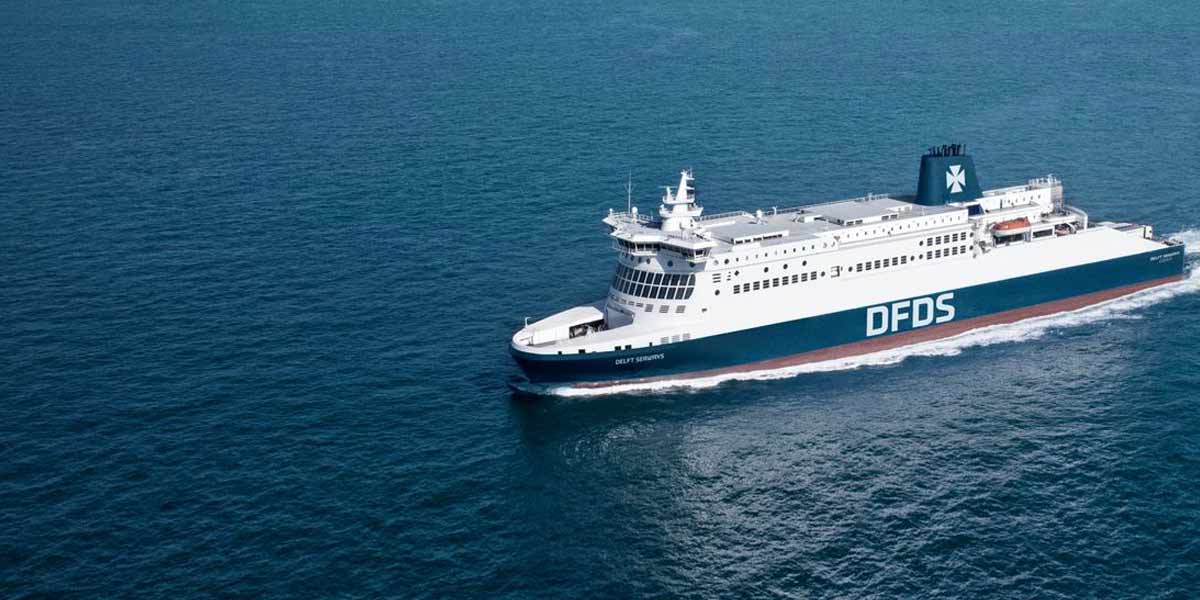
European Union’s Emissions Trading System (ETS)
Introducing the European Union’s Emissions Trading System (ETS) – DFDS's Passenger ETS Surcharge Explained
While travelling by ferry remains one of the most energy-efficient modes of transport, the shipping industry is still on a journey to becoming a fully sustainable sector. At DFDS, we understand the importance of addressing climate change and are dedicated to reducing our environmental impact while complying with environmental regulations.
As new sustainability policies affecting the shipping industry come into play from January 2024, we want to ensure transparency and keep passengers up to date with the latest changes.
Read on to learn about the European Union's Emissions Trading System (ETS) and how it impacts you as a DFDS customer. We appreciate your support in this collective journey towards a greener future.
What is the ETS and how does it work?
The Emissions Trading System (ETS) is a market-based approach implemented by the European Union, designed to effectively reduce greenhouse gas emissions while encouraging sustainable practices.
It follows a "cap-and-trade" approach, setting a limit on the total amount of CO2 that can be emitted by participating companies. This cap decreases annually, providing a clear trajectory towards reducing emissions.
From January 2024, the ETS will be extended to cover CO2 emissions from all large ships entering EU ports, including ferry operators like DFDS.
This means that emissions from voyages within the EU will be fully covered, 50% of emissions from voyages starting or ending outside of the EU will be covered, and all emissions at berth in EU ports will be covered. The UK has also announced plans to introduce a similar system meaning both UK domestic routes and routes between the UK and the EU will be affected by the ETS in the future.
To ensure a smooth transition, shipping companies will go through an initial phase-in period. In 2024, they will purchase allowances for 40% of their total emissions. This will increase to 70% in 2025 and eventually reach 100% in 2026.
DFDS’s Passenger ETS Surcharge Explained
To comply with the ETS, we will introduce an 'ETS Surcharge' on all journeys starting from January 2024. This surcharge, which reflects the cost of CO2 produced as determined by the ETS, will be shared between our freight customers and passengers on ROPAX (Roll-on/Roll-off Passenger) vessels based on expected volumes.
The ETS Surcharge will apply to all Vehicle Transportation and Mini Cruise customers however Foot Transportation and Bicycles are excluded.
By implementing this ETS, DFDS aims to share the responsibility of combatting climate change with its customers, while continuing to provide reliable transportation services.
We believe this expansion of the ETS is a significant step towards ensuring a greener future for the maritime sector. However, we understand that these changes may raise questions among our valued customers.
To address any concerns you may have, we have developed detailed FAQs where you can learn more about our ETS Surcharge and how the ETS impacts you as a customer.
2025 ETS Charges
2026 ETS Charges
Our Commitment to Decarbonisation
The DFDS Group’s commitment to sustainability goes beyond complying with regulations. We believe that by working together, we can make a significant, positive impact on the environment.
At DFDS, we are leading the way in decarbonising our operations and minimising our environmental impact. We are proud to share our efforts in building a more sustainable future:
Investing in cleaner technologies: We continuously invest in state-of-the-art vessels and onboard technologies that reduce emissions and improve energy efficiency.
Optimising vessel performance: Through meticulous route planning, streamlined operations, and advanced engineering, we maximise vessel performance, minimising fuel consumption and emissions.
Exploring alternative fuels: DFDS actively explores and tests alternative fuels, such as biofuels and hydrogen, to reduce our reliance on traditional fossil fuels and lower carbon emissions.
Your Role in Creating Change
We strive to be transparent about the ETS and our decarbonisation efforts, and we appreciate your support in this collective journey towards a greener future.
Did you know you can also participate in our carbon offset programs, which allow you to offset the carbon emissions generated by your travel? As a valued customer, your contribution plays a critical role in supporting decarbonisation efforts across the globe. Together, we can make a significant collective impact.
For more information on the EU’s ETS, visit Reducing emissions from the shipping sector (europa.eu).
